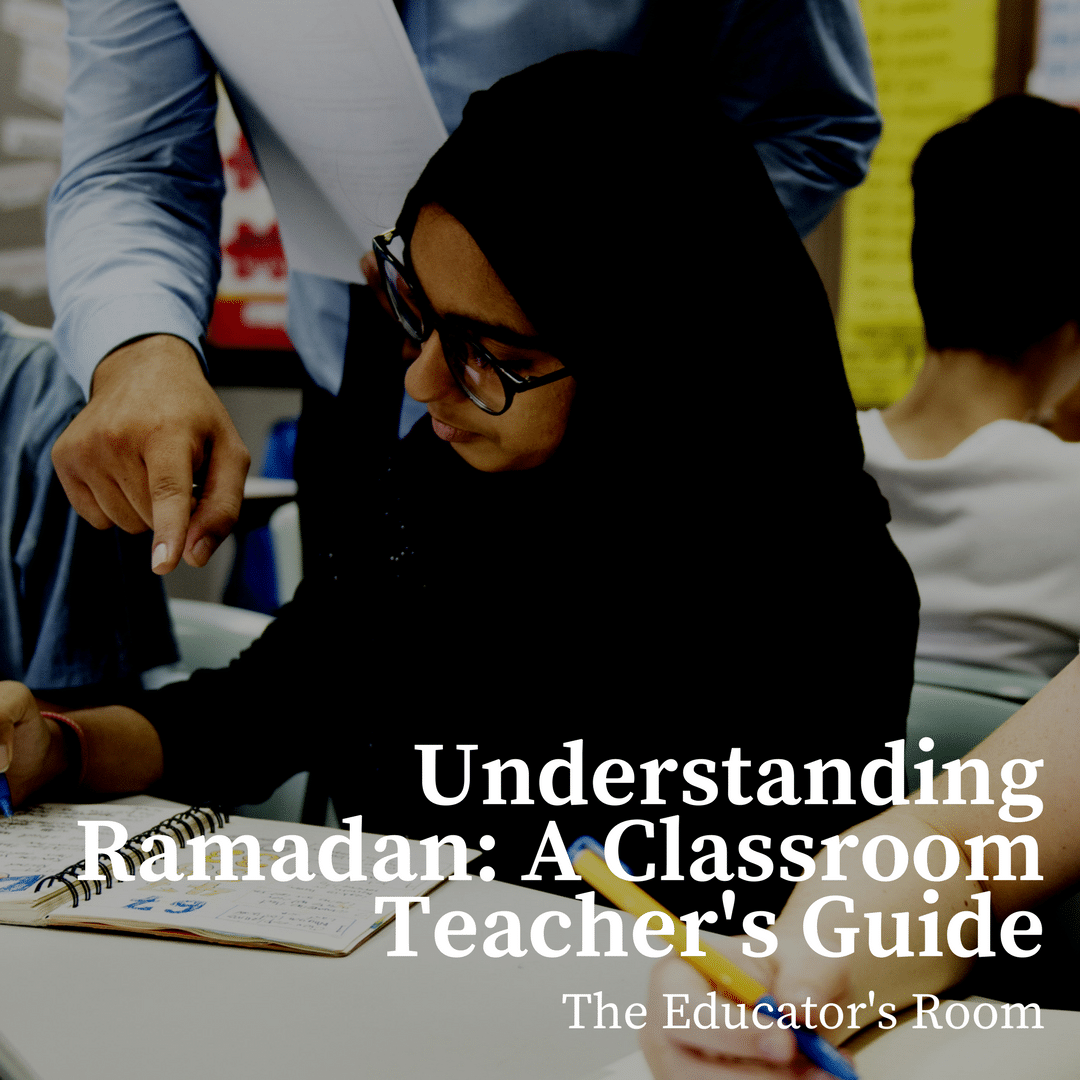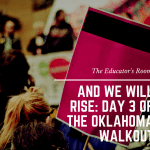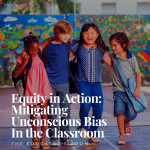This year in mid-March, approximately 1.8 billion Muslims worldwide will be observing the holy month of Ramadan. Ramadan is the ninth month of the lunar Islamic calendar, which begins the morning after sighting the last sliver of a crescent moon before a new moon and lasts for 30 days. The observance of Ramadan is deeply personal for individual Muslims but is generally marked by a period of fasting and praying.
As a high school student, I learned about several world religions, including Islam. However, I didn’t have any personal experience with the religion until I began teaching at my current school, where almost one-third of our student population is practicing Muslims. This opened my eyes to the many ways that we, as educators, can make this time easier for our Muslim students.
Fasting
Fasting, or Sawm, is the fourth Pillar of Islam. Healthy individuals fast from sunrise to sunset. Young children may be exempt, but I have had students begin fasting as early as 2nd grade. Fasting includes abstaining from all food and drink (including water).
For many students, fasting can be the most challenging aspect of Ramadan. Children will awake before sunrise to eat a meal with their families, known as Suhoor. They will not be able to eat or drink until after sunset when the fast is broken during the Iftar meal. That means that students cannot eat or drink for 15-18 hours!
Teachers and schools can be mindful of fasting students by providing an alternate location during lunch periods, such as an empty classroom or auditorium. It’s hard enough to fast all day without also having to be surrounded by other kids eating. Allowing Muslim students time to socialize with each other away from the temptation of food can go a long way to making them feel understood and accepted. Teachers will want to provide a non-food treat when planning classroom celebrations, such as birthdays. Children can be just as happy playing with sidewalk chalk outside or watching a movie as they would with eating cupcakes.
Because Muslim students are not eating or drinking during Ramadan, they may also tire more easily, making strenuous physical activity very difficult. Physical Education teachers might consider having fasting students walk laps or write an essay during class time. If the weather is hot, allow students the opportunity to play indoors during recess.
Praying
The second Pillar of Islam is Salat or prayer. Prayer occurs five times per day in the direction of Mecca (the birthplace of the prophet Muhammad). Muslim students should be allowed a quiet, private place to pray. Teachers can be proactive by asking ahead when they will need to leave to pray so that when it is time, the students can step out quietly and not disrupt the classroom environment.
Celebration
Ramadan ends with a celebration known as Eid al-Fitr. The festival of Eid al-Fitr is celebrated for 3 days. Muslim students will be spending that time out of school with their families participating in traditions, such as giving to the needy, praying, and visiting relatives.
Administrators can be supportive by checking the starting and ending dates for Ramadan so that big school events and field trips can be scheduled around this time.
Teachers can make their students feel special and included by wishing them “Eid Mubarak,” which is a traditional Eid greeting. Eid Mubarak loosely translates to “Have a blessed Eid.” This simple gesture often surprises and brings smiles to the faces of my Muslim students.
Understanding
If you don’t know, ask. Respectfully. Regardless of their beliefs, students just want to be loved and accepted and not ostracized for their traditions. Ask questions like, “How do you observe Ramadan?” and “How can I help you be comfortable during Ramadan?” Take the opportunity to educate yourself and the other students in your classroom. We often have non-Muslim students choose to fast during lunch periods with their peers as a show of support and solidarity. This kind act does more to foster goodwill than words ever could.
Although traditions may vary from region to region or family to family, Ramadan is a sacred time of year for Muslims. TESOL teacher Elham Shairi states, “My life would not be complete without this holy month. It’s about so much more than just eating. It’s remembering those who are less fortunate than us, emphasizing our focus on the day-to-day blessings that we may take for granted, and recalling the beautiful verses in the Quran.” A typical school year is about 180 days, but Ramadan is just 30. By showing compassion and providing accommodations for our Muslim students during this time, we can be the emissary for acceptance and understanding within our school community.







As a middle school librarian I had many Muslim students coming to the library for lunch period during Ramadan. I had a private room they could use to pray after washing up in my back room sink. I’d taped an arrow on the floor that identified true East, and one student donated a prayer rug. I know they were grateful for being able to gather in the library during this most important time, especially for 6th graders who were often experiencing their first opportunity to fast and appreciated having the support of older students.
A middle school librarian I was a Muslim student who came to the library for lunch during Ramzan. I had a private room that they could use to pray after washing in the sink of the room behind me. I started an arrow on the floor, which identified the true preacher, and a student donated a prayer street. I know that they were grateful for being able to gather in the library during this most important time, especially for the 6th graders who are often experiencing the first opportunity to fast and appreciate the support of the old student Were pillars
This was a wonderful article. Written with love and respect. As a Muslim parent I appreciated it and gently shared it with my children’s teachers.
Thank you.
Ramadan Mubarak Everyone!!
As a Muslim, I want to thank you for writing such an insightful article. This will help so many school teachers and administrators.